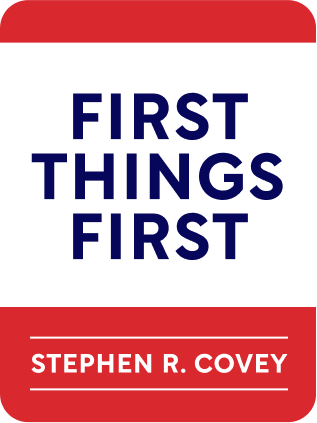

This article is an excerpt from the Shortform book guide to "First Things First" by Stephen R. Covey. Shortform has the world's best summaries and analyses of books you should be reading.
Like this article? Sign up for a free trial here .
What are the best First Things First quotes by Stephen Covey? What can these quotes teach you about time management?
These First Things First quotes by Stephen Covey highlight his key ideas about time management. They talk about how to manage your time not just efficiently, but also effectively and meaningfully.
Keep reading for three First Things First quotes about time management.
First Things First Quotes by Stephen Covey
Most of us spend too much time on what is urgent and not enough time on what is important.
The urgent vs important dichotomy is central to Stephen Covey’s approach to time management. He believes that the main reason we don’t have time for things that are important and meaningful is because we are too distracted by urgent tasks — things as trivial as a ringing phone or as critical as a health emergency.
“Urgency addiction is a self-destructive behavior that temporarily fills the void created by unmet needs. And instead of meeting these needs, the tools and approaches of time management often feed the addiction. They keep us focused on daily prioritization of the urgent.”
Further, he says that responding to urgency can become an addiction to some people because it brings a sense of immediate accomplishment and an adrenaline rush. Have you ever been faced with a crisis, come up with a solution, and felt that incredible sense of success and relief? Although urgent situations are stressful, resolving them creates a high that you can become addicted to; however, this is a self-destructive habit that only temporarily fills a void, whether it be the lack of a larger purpose or a desire for a sense of achievement.
Traditional time management approaches, including to-do lists and daily planning, largely feed into this addiction by emphasizing efficiency and failing to allocate time for important tasks that aren’t urgent. Making matters worse, our society tends to value busyness as an indicator of productivity. How often have you heard friends or coworkers talk about how busy they are with urgent tasks? Sometimes it seems to be used as a status symbol and fosters competition: If I’m busier than you, I must be achieving more and doing more important things. But chronic busyness prevents us from recognizing and addressing the important “first things,” priorities, in our lives.
The key is not to prioritize what’s on your schedule, but to schedule your priorities.
He believes that the key to a fulfilling life is organizing your time based on priorities, that is, things that are important and that move you close to your goals. His “first things” method of time management emphasizes important tasks, rather than those that are merely urgent.

———End of Preview———
Like what you just read? Read the rest of the world's best book summary and analysis of Stephen R. Covey's "First Things First" at Shortform .
Here's what you'll find in our full First Things First summary :
- How to work effectively, not just efficiently
- Why you need to think more about what you're spending time on than how much time you're spending
- The 6 steps to effectively schedule and prioritize important activities






